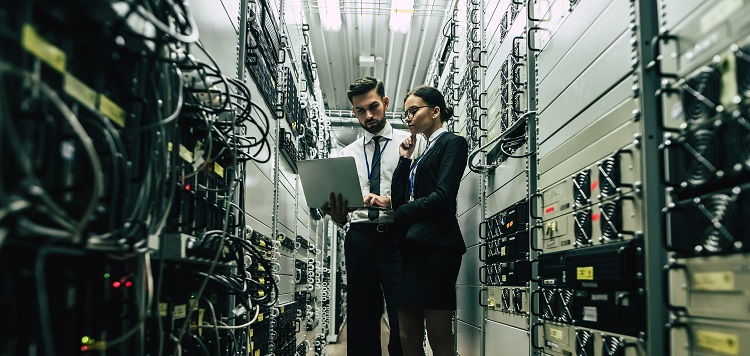Data centers have become an essential part of the digital world as companies, governments, and individuals generate and store data. According to the International Data Corporation (IDC), the digital universe will grow from 4.4 zettabytes in 2013 to 44 zettabytes by 2020, emphasizing the importance of data centers. However, data centers’ growth brings environmental concerns due to the energy required to run them and their increasing carbon footprint. To address this issue, the Climate Neutral Data Centre Pact (CNDCP or Pact) was established to ensure data centers are climate-neutral by 2030.
The CNDCP is an initiative by the European data centre industry, co-founded by the European Data Centre Association (EUDCA) and the Cloud Infrastructure Services Providers in Europe (CISPE). Its objective is to develop an industry-wide self-regulatory framework that enhances the sustainability of data centres across the continent.
CyrusOne and Aruba, two significant data center operators in Europe, have recently announced that they audited the operational data centers’ compliance with the terms of the Climate Neutral Data Center Pact, creating an important milestone towards achieving carbon-neutral data centers.
The Climate Neutral Data Centre Pact (CNDCP): Ensuring Climate Neutrality by 2030
The CNDCP’s main objective is to make all data centres in Europe climate-neutral by 2030. The Pact is already endorsed by over 60 organizations, including the European Data Centre Association (EUDCA) and the Cloud Infrastructure Services Providers in Europe (CISPE), which are the leading industry associations in Europe’s data centre sector.
Collectively meeting these targets will ensure data centres are climate-neutral by 2030. To achieve this, the Pact has developed a self-regulatory framework that promotes energy efficiency and sustainability in data centers across Europe.
The CDCP’s Auditing Framework for Sustainability Goal Compliance
To ensure that the Pact’s sustainability goals are met, the CNDCP has developed a detailed Auditing Framework. The framework was shared with the European Commission at the end of 2021 and is available for any independent auditing firm to use with their clients.
The Audit Framework provides robust validation of the achievements of the data center industry in meeting their commitments to the Pact. The framework covers principles such as the implementation of renewable energy sources, competitiveness in energy efficiency, adoption of water conservation practices, and implementation of circular economy principles to reduce carbon footprints.
Audit requirements for signatories of the Pact
All data center operators that are signatories to the Pact are required to audit their compliance using data from 1 January to 31 December following the first anniversary of their signing.
The audit ensures customers and stakeholders of these data centers that their sustainability goals are being met, helping them reduce their environmental impact. Furthermore, the audit provides a basis for accountability and transparency in sustainability reporting.
Environmental credentials can be verified by data center operators to access green funding
Data center operators that can demonstrate verifiable environmental credentials may find it easier to access significant low-cost green funding for their developments as part of schemes, including the recent European Temporary Crisis and Transition Framework.
By implementing the Pact’s sustainability practices and successfully auditing their compliance, data center operators can demonstrate their commitment to reducing their carbon footprint and improving the sustainability of their operations. This commitment is an essential requirement when applying for funding from environmental funding agencies.
The Pact auditing framework for demonstrating compliance with existing and planned regulations
The Pact Auditing Framework is also useful in assisting data center operators as they seek to demonstrate alignment with a wider range of existing and planned regulations.
As the world becomes increasingly focused on the importance of sustainability, organizations operating in the data center industry must align themselves with various sustainability practices and show compliance with regulations. The CNDCP’s Auditing Framework provides a basis for monitoring the industry’s sustainability efforts, helping it meet various regulations with ease.
Increased scrutiny of the data center industry
The data center industry is under increasing scrutiny for its environmental impact. As businesses, governments, and individuals continue to generate and store more data, data centers’ energy use is growing, leading to increasing carbon footprints. By taking CNDCP’s sustainability practices seriously, and demonstrating commitment, data center operators can earn trust and increase their reputation among customers and stakeholders.
Verified audits proving signatories’ commitment to climate neutrality
The CNDCP’s self-regulatory framework provides a clear roadmap for making all data centers in Europe carbon-neutral by 2030. The verified independent audits ensure that the signatories of the Pact are leading the charge towards climate neutrality.
Francisco Mingorance, the Secretary General of CISPE and co-founder of the Pact with EUDCA, adds, “The data center industry is under increasing scrutiny. These verified, independent audits prove that our signatories are leading the charge for climate neutrality.”
Conclusion
When the CNDCP was established, an agreement was made with the European Commission to audit progress on a regular basis. The Pact’s self-regulatory framework and auditing process will continue to ensure that data centers in Europe reduce their carbon footprint and contribute to sustainability practices.
With the CNDCP’s Auditing Framework, data center operators will find it easier to demonstrate compliance with sustainability regulations and access green funding. This, combined with increased stakeholder confidence, will incentivize operators to embrace sustainability practices further.

